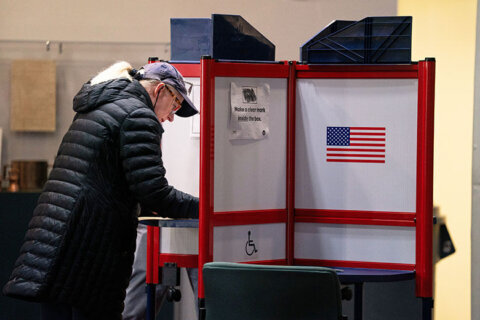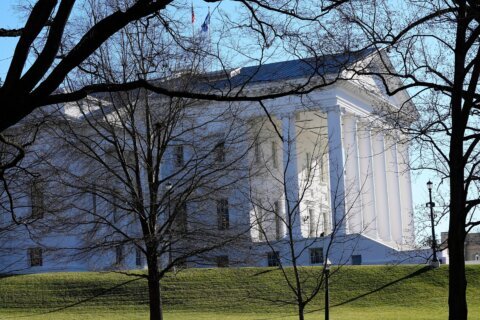By Meghan Gaffney
Capital News Service
RICHMOND, Virginia – Last summer, Kate Noon, a mother of two in Richmond, read a news article about Virginia’s dubious distinction as a state where women don’t have the right to breast-feed their children in public. It made her angry, and so she called her state delegate, Jennifer McClellan.
About the same time, 100 miles away in Fairfax County, Virginia, Rebecca Geller had recently given birth to her third child.
“While nursing my newborn daughter, I was alarmed to learn that Virginia did not have legal protections in place for breast-feeding women who wanted to feed their children in public places,” she said. So Geller reached out to her delegate, Dave Albo.
The two mothers were working in parallel paths, attempting to update the law on breast-feeding in Virginia. It is one of three states – along with South Dakota and Idaho – where women lack the right to breast-feed in public.
Geller’s and Noon’s paths eventually converged, and they led to success: Last week, the House and Senate unanimously gave final passage to legislation declaring that “a mother may breast-feed in any place where the mother is lawfully present.”
The General Assembly passed two identical bills on the issue: House Bill 1499, sponsored Albo, McClellan and 38 other delegates; and Senate Bill 1427, sponsored by Sen. Jennifer Wexton of Leesburg and three other senators.
The bills have been sent to Virginia Gov. Terry McAuliffe to be signed into law. It would take effect July 1. Noon said that will be a victory for mothers.
“This will make it so that people are not denied access to be somewhere, just because of how they choose to feed their child,” she said. “People should be able to feed their child wherever they are, regardless of whether that happens by a bottle or by a breast.”
In 2002, Virginia passed a law that allowed breast-feeding on state property. But that statute is too narrow, Noon noted.
“You’re protected at the Capitol, but if you walk two blocks off to a restaurant, you’re not protected,” she said. “The lack of a law opened up women, children and entire families to be denied access to accommodations, services and common goods.”
Geller, a lawyer, agreed. She said that is why “I contacted my representative, Del. Albo, and helped him draft a bill to change this law.”
Shortly after Albo filed HB 1499, McClellan signed on as a chief co-sponsor. It’s noteworthy that Albo is a Republican and McClellen is a Democrat.
“Right out of the gate, we had a bipartisan bill,” Noon said.
Once the bill was filed, Noon and Geller got to work on a collaborative effort to pass it. Geller began organizing activists and business owners to publicly support the legislation, while Noon lobbied senators, delegates and legislative aides at Capitol Square.
They created a Facebook page to support the legislation and encourage people to tell their delegates and senators to vote for it. Noon said social media was an important factor in building support for the issue.
Both women were prepared for a fight to pass the bill; they did not expect it to sail through the General Assembly without any resistance.
“Considering the opposition this bill faced when introduced a decade ago, we expected the breast-feeding bill to be an uphill battle,” Geller said. “I am proud of the Virginia Legislature to take such a positive stance to support Virginia women and children.”
The legislation received support from key organizations including the Virginia Department of Health, the American Academy of Pediatrics, the American College of Nurse Midwives and the March of Dimes.
“It was a completely grassroots effort by breast-feeding women and breast-feeding supporters of Virginia,” Noon said. “We kind of just built it from the ground up, from two different women’s ideas.”
They don’t plan to stop there.
Noon already has plans for three more bills to be introduced in the 2016 General Assembly session. One of them would protect a woman’s right to pump breast milk in the workplace – as actress Scarlett Johansson did at the Academy Awards last week.
Geller would like to see “accommodations for breast-feeding moms who return to work. As a working mom of three children, I understand the challenges of breast-feeding after maternity leave ends and believe this is an issue in which Virginia laws could improve.”







